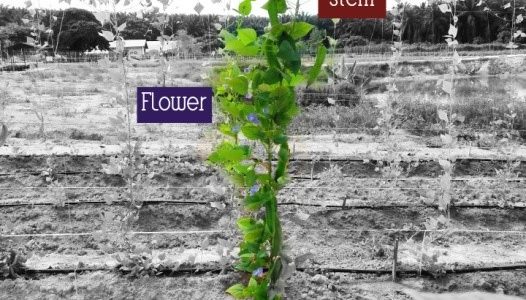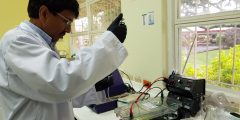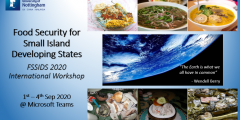Crops for the future: the case of the winged bean – by Chong Yuet Tian
September 30, 2020
Future Food Beacon researchers in Malaysia and the UK are working with partners globally to utilise crop diversity to plug gaps in food production. We aim to address nutrition security challenges by making a diverse range of healthy food crops available and accessible to all. In addition to the flagship project on Bambara groundnut, Future …
Resistance to disease in tropical crops – an interview with Professor Pathmanathan Umaharan
September 17, 2020
Professor Pathmanathan Umaharan (‘Uma’) is the Director of the Cocoa Research Centre, University of the West Indies. The Future Food Beacon is proud to welcome him as an Honorary Professor for the 2020/21 academic year. We spoke with Uma about his research career, current projects, and collaborations with Future Food. Tell me about your work. What is your research about? …
Food Security in Small Island Developing States (FSSIDS) – a conference report by Dr. Chung Hong Tan
September 11, 2020
In the first week of September 2020, the Future Food Beacons at the University of Nottingham’s UK and Malaysia campuses jointly ran an international workshop Food Security in Small Island Developing States (FSSIDS 2020). The workshop brought together more than 30 participants from 10 countries in Southeast Asia and the Pacific, in addition to …
Blue copper in Casparian strips: the work of Dr Guilhem Reyt
September 4, 2020
Dr Guilhem Reyt is a Research Fellow working with the Future Food Beacon. This brief blog provides links to recent coverage of his work and, most importantly, to his new paper in Current Biology. Locked out during lockdown Any scientist who was locked out of their laboratory during the Covid-19 pandemic of 2020 will be …






Recent Comments